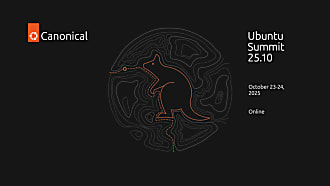Maria Bonnefon
on 27 August 2015
Public and private enterprises across the world have been using Microsoft Windows for years, but it calls into question whether this is in fact the best choice or simply force of habit?
With recent security and performance issues coming to the fore, an increasing number of companies are exploring the benefits of using alternative Operating Systems, and harvesting the benefits of ultra secure, robust, high performance options. Plus, the cherry on the top is that royalty, maintenance and training costs for users can be reduced by as much as 70 percent!
Ten years ago, such alternatives were only something companies could dream of. They were locked into proprietary models that financially squeezed them, yet still failed to provide all the services required. This is slightly reminiscent of Henry Ford’s choice of color for ‘Model T’ …. ‘you can have a car painted any color so long as it is black.’
Increasingly, CTOs are questioning whether they actually need to remain in this locked-in situation. Frequently asked questions include: can I deploy an alternate OS in our computer park without compromising on productivity whilst reducing costs? Will the performance of the OS deliver on its promise? Will I be able to drive down royalty costs without having to make hefty financial investments on technical support and training? The answer is yes. Ubuntu can offer this and more.
So, now that Windows 10 has been announced, customers should ask themselves is this the right time to transition? The ‘comfortable’ next move would be to simply upgrade; however, the heavy resource constraints on devices and meatier royalty fees have turned off even the most fervent Windows followers. Top media across the globe are analyzing ways to snub Windows 10 (see Le Monde August 4, 2015 article ‘5 operating systems to snub Windows 10’) and, in my opinion, for mainstream users who care about their privacy, this is probably the best possible time to take a closer look at other choices.
Ubuntu continues to grow in popularity, not only with mainstream consumers, but also with Fortune 500 companies. Moreover, government and top notch education entities across the globe have realized they can save millions of dollars, and invest funds more prudently for social programmes.
Microsoft is offering a free download of Windows 10 for a limited time. This is great for many users, but it’s only available to those running Windows 7, Windows 8.1, and selected Windows Phone 8.1. For everyone else, it’ll be available for $199USD for Windows 10 Home* or $199USD Windows 10 Pro*.
This is great if you are in the category of people that are able to spend this kind of cash. However, that money might be better put towards more altruistic or even epicurean objectives, whilst still allowing you to benefit from a tremendous OS. Food for thought?
*MSRP from Microsoft. There is a ‘free’ upgrade option if you have a previous Windows 7 or 8X versions, but users must hold a Windows license .



